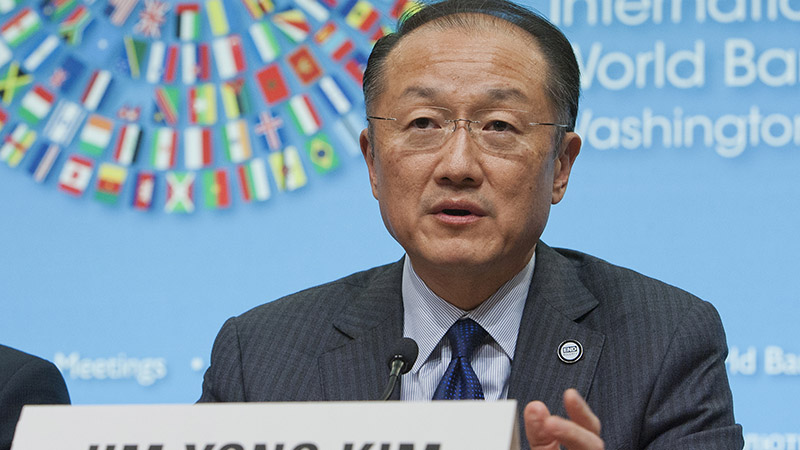Jim Yong Kim, World Bank Group President, has compared cryptocurrencies to “Ponzi schemes,” the latest financial voice to raise questions about the legitimacy of digital currencies such as Bitcoin.
The President said Wednesday at an event in Washington that “in terms of using Bitcoin or some of the cryptocurrencies, we are also looking at it, but I’m told the vast majority of cryptocurrencies are basically Ponzi schemes and it’s still not really clear how it’s going to work.”

The development lender is “looking really carefully” at blockchain technology, a platform that uses so-called distributed ledgers to allow digital assets to be traded securely. There’s hope the technology could be used in developing countries to “follow the money more effectively” and reduce corruption, Kim said.
The value of cryptocurrencies soared in 2017 before slumping, with Bitcoin losing nearly two-thirds of its value since mid-December.
While cryptocurrency technology has the potential to reshape global finance, concerns have been raised about its volatility and the potential for money laundering or other crimes.
In a speech this week, Bank of International Settlements chief Agustin Carstens said there’s a “strong case” for authorities to rein in digital currencies because their links to the established financial system could cause disruptions. Federal Reserve Chair Jerome Powell has said that “governance and risk management will be critical” for cryptocurrencies.
Monday, Feb 5, Goldman Sachs Group Inc.’s global head of investment research said the tumble in cryptocurrencies that erased nearly $500 billion of market value over the past month could get a lot worse, as most digital currencies are unlikely to survive in their current form, and investors should prepare for coins to lose all their value as they’re replaced by a small set of future competitors







